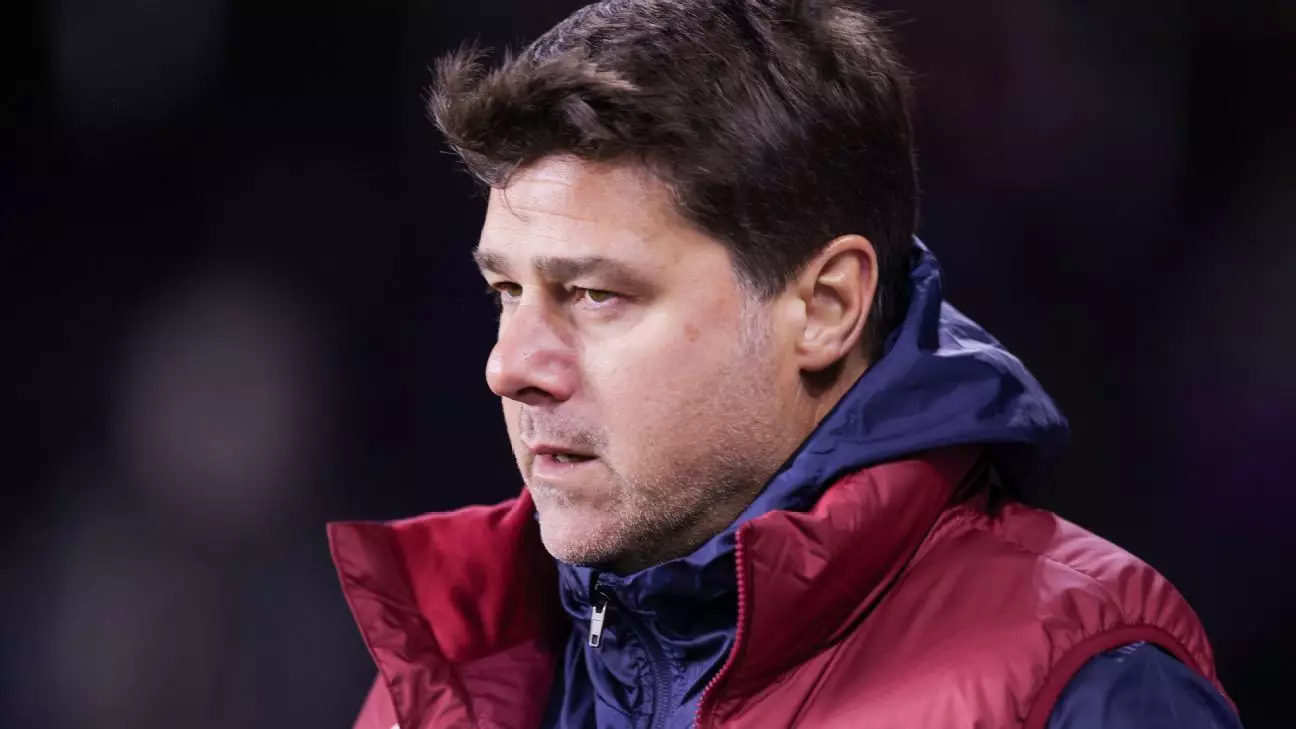In today’s highly charged political climate, few realms remain untouched by tensions and rhetoric, and sports stands out as no exception. The Concacaf Nations League semifinal match between the U.S. men’s national team and Panama serves as a compelling backdrop against which the intersection of sport and politics comes into sharp focus. Recently, U.S. head coach Mauricio Pochettino emphasized the importance of concentrating on the game rather than the political narratives surrounding it. His stance invites reflection on how athletes and coaches navigate the complex landscape of national identity, rivalry, and political undercurrents in a globalized world.
Pochettino’s assertion that discussing politics is a “big mistake” underscores the inherent challenge faced by athletes who are often thrust into the limelight of national pride and sentiments. This draws attention to the role of sports as a unifying force, one that transcends disputes and divisions. By focusing on what happens on the pitch, Pochettino and his team aim to foster an environment of competition and camaraderie, which contrasts remarkably with the polarization often seen in other spheres of society.
The Clash of Nations and Its Historical Roots
The U.S. and Panama share a storied rivalry, intensified by the recent history of their encounters. In the previous Copa América, Panama stunned the U.S. with a 2-1 victory, a result that has rippled into their upcoming confrontation. Historical context is crucial here. The political comments surrounding Panama Canal sovereignty highlight longstanding issues, yet Pochettino’s focus serves as a call to revert back to the essence of sports — a playground for competition devoid of the weight of previous conflicts and grievances. It raises the question: can sports serve as a bridge rather than a battleground, allowing audiences to revel in the thrill of competition rather than reductions to political symbolism?
While Pochettino openly discards the political dimensions, it’s impossible to ignore that sports often reflect the realities of the nations they represent. This sentiment resonates with other coaches participating in the tournament, as both Panama’s Thomas Christiansen and Canada’s Jesse Marsch have showcased a similar reluctance to engage in political discourse, redirecting conversations toward strategies and performances instead. This shared ethos hints at a growing desire among sports leaders to keep the main stage for athleticism and sportsmanship rather than diverting attention to their countries’ entangled histories.
A Call for Unity Through Sport
Ultimately, Pochettino’s unyielding focus on the game itself hints at an underlying philosophy: the belief that sport can be a force for unity. The enthusiasm of fans, coupled with the talents of players, creates a unique atmosphere that elevates the competition beyond its physical dimensions. It draws together individuals from diverse backgrounds, promoting solidarity that often eludes conventional political discussions. By framing the match as an opportunity to “destroy” the competition — a term that Pochettino clarifies is meant in a sporting context — he ignites a spirit of friendly rivalry devoid of malice.
Marsch’s perspective on elevating sportsmanship as a means of celebrating one’s nationality without devolving into political debates echoes this sentiment. By calling for fans to cherish the game rather than engage in criticisms that arise from political differences, it invites a reimagining of sports as a neutral sphere where individuals can unite for a common cause — the love of athletic competition. This vision extends beyond the borders of this specific tournament, suggesting that perhaps the spirit of sports can symbolize a path toward reconciliation.
Future Implications and Broadening Perspectives
The interaction between sports and politics will always remain a potent issue, especially as societies become increasingly interconnected and complex. As the U.S. prepares to face Panama, awareness must also be given to the broader implications of how nationalistic fervor manifests in sports environments. In this modern era, the potential for sport to heal divisions is more compelling than ever. Coaches like Pochettino, Christiansen, and Marsch exemplify that while the political landscape may shift and change, the spirit of the game can provide a fundamental basis for human connection and mutual respect.
Thus, as fans tune in to witness the clash of nations on the field, the hope remains that these moments will transcend beyond the sport itself, reminding all of us that, regardless of political backgrounds, jubilation, passion, and a desire for excellence can unite us in remarkable ways.

